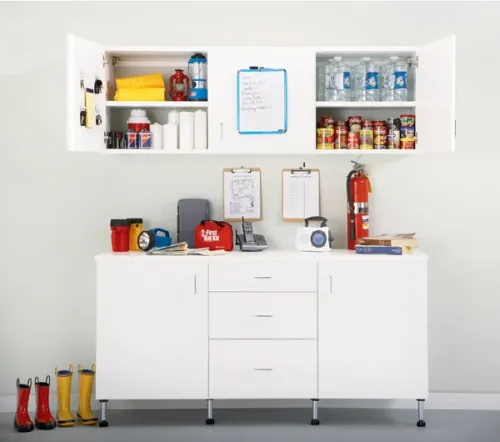These safety tips will help to protect you and your family in and around your house.

- Protect against sparks by enclosing a fireplace’s opening with glass doors or a sturdy screen. Never close the flue while a fire is still smoldering. Carbon monoxide can build up.
- Fireplaces are consistently rated as one of the top amenities desired by home-owners. In fact, fireplaces have one of the highest investment returns of any addition to your home. Here are a few tips to keep safe when using your beautiful fireplace: When you light the fire keep the flue fully open, for maximum airflow to feed the flames. Once it’s roaring, close the flue to the point where the chimney starts smoking, then open it just a tad for optimal heat. To keep airflow constant and avoid carbon monoxide buildup, open the window closest to the fire by a half-inch. And make sure to keep a fire extinguisher handy, because even a “dead” fire can suddenly emit random, carpet-igniting sparks.
- Make sure that any fabrics you use for upholstery and curtains are flame retardant. All new sofas have to meet strict fire regulations but second-hand ones may have been made before they came into force.
- A fire safety tip, don’t ever leave the dryer running when you are not at home. In 1998, there were 14,300 home fires related to dryers.
- Never run an empty microwave. It can cause overheating and serious damage.
- Change your furnace filter monthly. A clogged filter can cause the unit to overheat and can lead to premature damage to the air conditioning system.
- Paint is flammable. Store in a climate-controlled area away from heat sources. Cans exposed to heat can expand, causing leakage.
- Lights with motion detectors are convenient and an efficient source for outdoor security lighting. Well positioned motion detectors make it virtually impossible for anyone to sneak up on your home.
- To reduce the likelihood of burglary do everything you can to make your home appear occupied when you are away: leave lights and a radio on timers, have the lawn mowed, and newspapers and mail collected.
- Never use a metal ladder around power lines or electrical wiring; a metal ladder will pose the risk of electric shock.
- The single most important fire preventive measure is to equip your home with working smoke detectors. Place one on the entry level and outside each sleeping area. Remember to test them every month and replace the batteries annually.
- Freestanding metal fireplaces or pottery chimneas are fun and enjoyable for small outdoor fires. Just make sure not to put them on wooden decks or other flammable surfaces.
- More than one eighth of annual house fires are caused by space-heating equipment. Electric or liquid fuel heaters must be at least 3 feet away from any object, including walls.
- A few simple precautions can go a long way toward protecting your home from termites. Fixing all leaks, cleaning overflowing gutters and using splash blocks to divert water from the foundation will keep your house dry and uninviting for the pests. Isolating wood from concrete or masonry, trimming shrubbery and keeping wood mulch away from your house will also keep termites at bay. Also, make sure all firewood is stored off the ground at least 15 feet from the house and that there are no tree stumps or scrap wood in close vicinity.
- To prevent scalding, make sure your water heater temperature is set no higher than 120 degrees Fahrenheit.
- Keeping a phone list in the kitchen near the phone is not just convenient, but a safety feature as well. Jot down phone numbers for the police, fire department, doctors, family members or neighbors so if you have to act quickly you can.
- If you use well water, be aware of agricultural activity in your area, which affects the quality of your water. After your first year on the property, test as you feel necessary.
- Change the batteries in your smoke and carbon monoxide detectors with the beginning and ending of Daylight Savings Time. They’re lifesavers and should always be treated that way.
- Arrange to have the chimney or flue cleaned. Blocked residue or even a bird’s nest can disrupt ventilation and endanger your health or family.
Here are some related articles:
Save this article to:
back to top